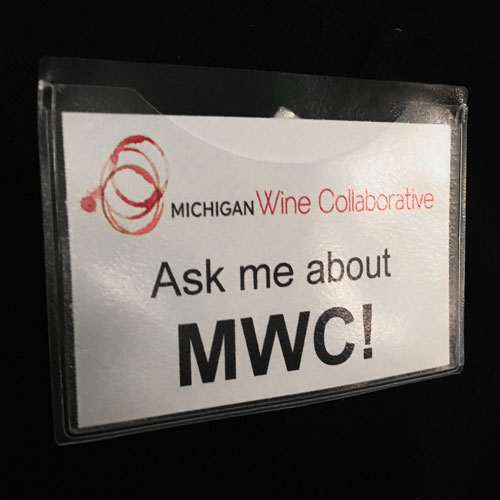How would you like to influence the future of the Michigan wine industry?
And by “you,” I mean the impassioned Michigan wine lover, kicking back at home with a glass of wine while reading this.
A newly formed nonprofit organization called the Michigan Wine Collaborative is seeking members who are interested in their mission to support, steer and unite the state’s wine industry, which has been steadily increasing in size, scope, and acclaim.
“We realized some time ago a need to have an industry-led group helping to shape the future of our growing industry,” says Brian Lesperance, the group’s secretary and communications committee chairman, as well as vice president of operations and winemaking at Fenn Valley Vineyards & Wine Cellar in Fennville. “There is no question we are already doing lots of great things, but in order to continue to grow and develop, we need to work together on wine- and grape-growing research and marketing that is often specific to Michigan.
“Most established wine regions have a similar setup and have demonstrated a high degree of success.”

Partners in Progress
Lesperance says the collaborative’s activities will overlap somewhat with those of the Michigan Grape & Wine Industry Council — an 11-member group that operates under the umbrella of the Michigan Department of Agriculture & Rural Development to promote the state’s wine and wine grape-growing industries. However, the two entities will work hand in hand.
“We intend to partner with the council to pick up where they leave off,” says Lesperance. “The reality is, the council’s budget and mission is limited by being a government entity. And while they do a fantastic job, it’s time industry steps up to help control our own destiny.”
Karel Bush, executive director for the Michigan Grape & Wine Industry Council, says the council wholeheartedly supports the new initiative.
“I’m excited about the progress the Michigan Wine Collaborative has made over the past year,” she says. “A very dedicated core group of growers and winemakers have worked hard to form the organization, and the Michigan Grape & Wine Industry Council has worked closely with them every step of the way.
“The MWC and MGWIC have many of the same goals and objectives, and we’re clearly working toward the same overall goal: to support the vineyards and wineries of the state.”
Research is one important example of how the cooperative will complement the council’s work, says Bush.
“With its limited funding, the council is able to support only a portion of the research projects that are proposed each year — projects that are necessary for the industry to continue to grow,” she says.
In addition to research, Lesperance says the collaborative will maintain several other task-focused committees, including finance, communications, and marketing. But the first order of business is building a solid membership base.
“At this stage of the game, we really want to broaden our membership and get our committees staffed,” says Lee Lutes, the collaborative’s treasurer and winemaker for Leelanau Peninsula-based Black Star Farms. “There is so much talent in our industry; if we can get more growers and wineries actively involved, there is every reason to believe we can aid in the continual development of a profitable and sustainable industry for the long haul.”
Consumer View Needed
Lesperance stresses that consumer members are also essential to the collaborative’s success.
“Consumers are the most important stakeholder in the Michigan wine industry,” he says. “Without them, we don’t have an industry. By joining the MWC, consumers will have the ability to help shape the future of this exciting and important industry.”
The group has established a website, MichiganWineCollaborative.com, to serve as a go-to source of viticulture and enology information. Lesperance says the goal is to comb through the glut of information available to determine what’s “current, accurate, and relevant” to the Michigan wine industry in hopes of saving members time and money as they conduct research for future projects.
Anyone interested in getting involved can visit the website to enroll. Annual membership dues start at $25 for consumers, students, educators, researchers, and government employees. Other nonvoting positions range from $50-$250, while voting members from vineyards, wineries, and suppliers will pay $125-$500, depending on their size.
“It’s people and time we need most at this point,” says Lesperance. “With the help of a few more passionate people, we are convinced we can create an organization that can truly provide benefits to the industry.”
Cortney Casey is a certified sommelier and co-founder of MichiganByTheBottle.com, a website and online community that promotes the entire Michigan wine industry. She’s also co-owner of Michigan By The Bottle Tasting Room, tasting rooms operated in partnership with multiple Michigan wineries that are located in Shelby Township, Royal Oak, and Auburn Hills. Contact her at cort@michiganbythebottle.com.
|
|
|










